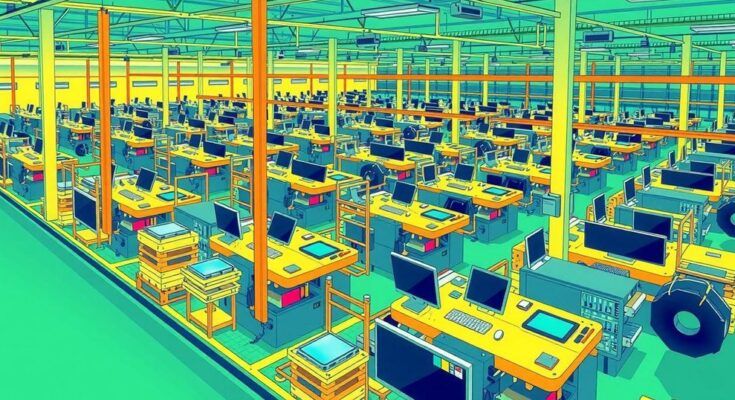Apple is planning to expand manufacturing in Brazil to mitigate U.S. tariffs on imports from China and India. The initiative aims to avoid higher costs for consumers and leverage lower import taxes. Apple has received certification to assemble the iPhone 16 in Brazil, and expansion plans would support both local demand and exports to the U.S.
Apple is reportedly exploring the possibility of expanding its manufacturing presence in Brazil as a strategic move to mitigate the financial impact of new U.S. tariffs on imports from China and India. Following the announcement of tariffs of 34% on Chinese products and 26% on Indian imports by the Trump Administration, Apple aims to avoid transferring increased costs to its customers.
The company is looking to enhance its assembly operations in Brazil, where there is only a 10% import tax, significantly lower than the tariffs imposed on its Asian supply chains. Reports indicate that Apple, in collaboration with its manufacturing partner Foxconn, has already secured the necessary certification to start assembling the iPhone 16 in Brazil.
Currently, the Brazilian facility produces earlier models such as the iPhone 13, 14, and 15. The expansion would incorporate the iPhone 16 Pro, demanding further investment and structural adjustments. This initiative aims not only to fulfill local market demands but also to enable exports to the U.S., strategically positioning Apple to bypass a considerable portion of the new tariffs while maintaining competitive pricing.
In summary, Apple is considering an expansion of its manufacturing operations in Brazil to navigate the newly imposed U.S. tariffs on imports from China and India. By increasing its Brazilian assembly capabilities, the company seeks to avoid passing on higher costs to consumers and maintain competitive pricing, while potentially serving both local and U.S. markets effectively. This strategic move reflects Apple’s adaptability in facing regulatory challenges.
Original Source: www.channelnews.com.au




